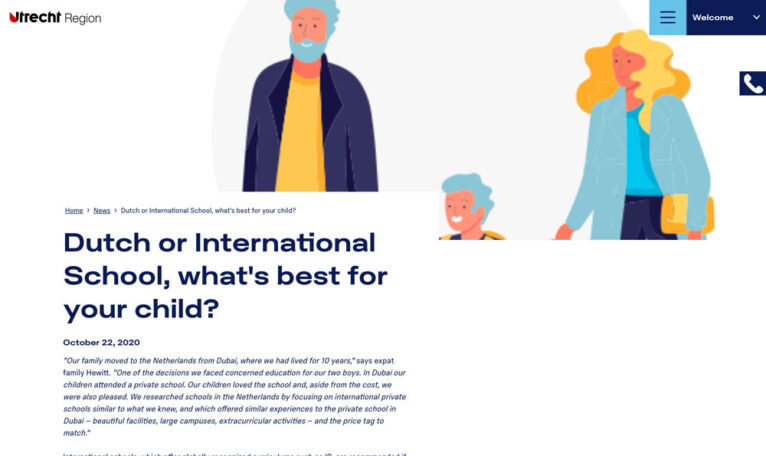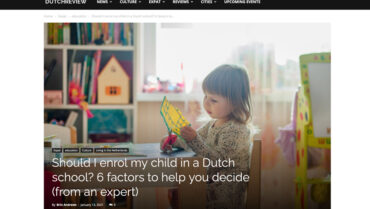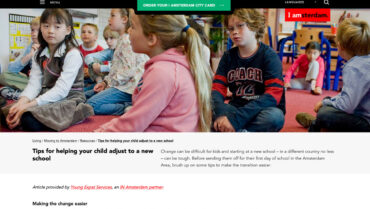“Our family moved to the Netherlands from Dubai, where we had lived for 10 years,” says expat family Hewitt. “One of the decisions we faced concerned education for our two boys. In Dubai our children attended a private school. Our children loved the school and, aside from the cost, we were also pleased. We researched schools in the Netherlands by focusing on international private schools similar to what we knew, and which offered similar experiences to the private school in Dubai – beautiful facilities, large campuses, extracurricular activities – and the price tag to match.”
International schools, which offer globally recognized curriculums such as IB, are recommended if you plan to move frequently. There are fully private international school and funded by the government international schools like the one in Utrecht.
Children aged four to 12 attend Dutch primary schools, often no further than 1km from their homes. After age 12, children attend secondary school, which has different levels. If you plan to stay longer in the Netherlands, choosing a local Dutch public school is a great option. Dutch schools are free of charge, only a small voluntary fee is asked for.
“The international schools seemed too similar to what we had experienced in Dubai,” the family Hewitt says. “But we wanted a different experience: cycling five minutes to school, language immersion, long-term friendships and clubs. The administration of the international school made it clear that the level of Dutch would not be sufficient to support a transition to a Dutch school. Our family had simple advice: if you don’t go to public school, you will always be an outsider. Nonetheless, the prospect of navigating the public-school system was daunting and often discouraging. A frequent answer was ‘As we foresee no free spots, we see no point in meeting.’ Luckily, I got help. On our first call we received a lot of information about the different systems and found out the Dutch system had a special program of language integration.”
In Utrecht from the age of four, children in primary or secondary schools follow a one-year Dutch immersion program before starting a regular Dutch school. Secondary immersion classes take about 1.5 years; the child sometimes starts secondary school in a lower age group.
“We have been with the school for a few months, and our experience has been excellent. The instructors running the newcomers class have vast experience helping foreign children integrate, and they respond immediately to our concerns. There have been some integration challenges. Learning a new language is not easy, but it will come for our kids.”
Going local or international can be a difficult choice. You children’s age, the time you think to stay in this country, your language at home can influence this personal choice. Our partner, Young Expat Services, can help you find the best school or preschool for you children in Utrecht Region. Visit their website or send them an email for more information.



